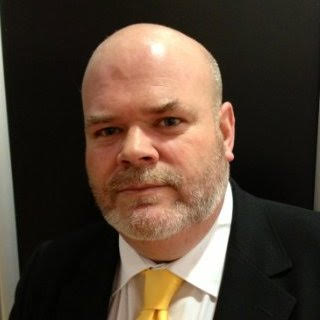Geoff Cooling
Editor’s Note: Today’s post from Geoff Cooling is Part 2 on how to establish yourself as an authority.
In the last article I spoke about the possible impact on our profession of advancements in hearable technology and the widespread acceptance of those devices in mainstream culture. I was perhaps a bit dour in my prediction that hearing aid sales as a revenue center would disappear, however I do think it needs to be stated because it is a possibility.
So what are we to do in order that our businesses can survive and thrive?
We need to consider other products and services as revenue centers. We need to widen our product and service offerings to include any innovative product or service that reasonably fits within the scope of our area of operations.
Driving Services in Your Practice
In order that this article isn’t a novel, I wish to focus on one service and possible product only. For this purpose, I have chosen tinnitus services. As we are all aware, tinnitus is a disease that affects millions of people.
While many search for the root cause or underlying etiology of their tinnitus, only a small proportion of those sufferers search for an actual treatment.
Tinnitus treatment as a service has increased in popularity across the audiological profession, a state of being that has been actively encouraged by some of the hearing device manufacturers.
Many hearing aid manufacturers now have some sort of tinnitus treatment option, which may also be backed up by some sort of business support. For instance Widex, with its Zen therapy protocol, is an entire business support service in a box.
Let’s Talk About Tinnitus Apps
As part of the burgeoning awakening within the Audiology industry to tinnitus, there has been a proliferation of apps designed to address it. Each of the hearing aid manufacturers has an app that will connect to their hearing aids and offers the end user some form of sound therapy.
The key is that there are hearing aids involved and some tinnitus sufferers neither need, nor want, to wear hearing aids.
There are other options though; one of them is an app based sound therapy treatment from an Irish based start-up called Restored Hearing. Thus, I have picked their app and the company because they are Irish and they are a start-up, two things that are close to my heart. However, that is not to take away from the app which is clinically proven and CE certified.

Images of the app from Restored Hearing website.
The reason why I pick the app in particular is because it is both a sound therapy treatment and a tinnitus diary.
The app offers users the ability to undertake sound therapy via a smart phone or computer and it allows them to log their daily ingestion of medicines, beverages, alcohol and the stress they were feeling. Over a period of time this quickly becomes a diary of their life with tinnitus that can be easily queried for triggers.
At present users can share their experiences with clinicians but I have spoken to Restored Hearing and they are planning to open up a dashboard for clinicians in order that users can share their logs with them.
Collaborative Treatment
The reason that it so fascinates me is that it allows a collaborative treatment routine, treatment that the patient is deeply involved in, and can collaborate with the professional on. The modern patient wants this type of collaborative approach to their healthcare provision.
This type of app allows you, as the professional, to further support your tinnitus therapy service offering. It allows you to deliver tinnitus services that are collaborative; it allows you a deeper involvement and connection with the patient. The use of these kinds of innovative technologies help establish you as a cutting edge clinician in the field of tinnitus therapy.
This is one example of using innovative technology offerings, adapting it, and then integrating it into your practice in order that it supports you as an authority.
By embracing innovative technologies, we can broaden our services and make them more attractive to our customers. I believe that we should look at all innovation with an eye to adapting it or integrating it into our practice.
Yes, Even the Dreaded PSAPs
Yes, even the dreaded PSAPs, we should investigate them and, if it makes sense, we should introduce them into our practices.
Concerned by the low margins and worried about follow-up service? Don’t, these devices are sell and forget, you sell them on the premise that there is no support, no fine tuning and if something goes wrong call Samsung support.
If you want service, support, fine tuning and strong aftercare, you need to buy a hearing aid.
PSAPs are only a threat as long as we allow them to be. Instead of standing there, shaking your head and talking about licensing and contra indications, charge them for a hearing test, tell them how bad the devices are and then sell it to them.
People will only understand what you are talking about when they experience it for themselves.
The Trap is Not Selling Them
The trap for our profession is not offering these types of technologies, because consumers will make their own decisions. Modern health consumers rail against paternalistic healthcare.
By not adapting and integrating technology, which is entering the mainstream, we appear anachronistic and worse– we will alienate the very people who need our care.
In finishing, I encourage you to expand your service and product offering–introduce innovative technologies that support you as an authority. In this way we can stay relevant.
Staying relevant to the people we serve is the only way that allows us to survive and thrive in the future.
*title image courtesy Transporter 3, Lionsgate
Geoffrey Cooling is a regular contributor to HHTM and is the co-founder of Audiology Engine, a company offering web services to hearing healthcare practices. He is a qualified hearing aid dispenser in Ireland and worked in private practice. Following private practice he began work for a major hearing instrument manufacturer. Geoffrey has written about online strategies and business development for hearing healthcare on the Just Audiology Stuff blog since 2009. He has a passion for futurism, technology, online marketing and business development.







